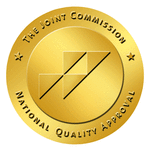If we were to perform an autopsy on my relapse, you would find a set of universal precursors to my taking that first drink which eventually led up to my sticking a needle in my arm again. And, although I realize that, in hindsight, vision is usually 20/20, I also realize that a primary component of my relapse was my ability to rationalize my behavior, or rather, my ability to rationalize the behaviors that led up to my relapse. Because, like many addicts and alcoholics, I have the uncanny ability to talk myself into taking that first drink, regardless of the consequences.
That said, I have to tell you that I don’t live like that anymore. Because I grew up. So how do you prevent relapse?
Structure Is Important To Addiction Recovery
8 Simple Ways To Prevent Relapse
To that end, I offer you these 8 simple ways to prevent relapse, either weekday or weekend relapse prevention. But, I’m afraid, I can only offer these tools to you; it is ultimately up to you or the addict/ alcoholic to incorporate them into his or her recovery and use them.
Believe me, I know how hard it is in the beginning. But I can promise you that, as time goes by, the self-esteem that is built from having these components in your life will more than make up for the absence of the substances you’ve been using to destroy yourself. Because, ultimately, it’s about feeling good about yourself.
1. Flex your willpower muscles. Research studies show that willpower can be limited, but only if we believe it is limited. The truth is that temptation is everywhere. However, when you resist one temptation, you can better resist the next one more easily. And, every time you let an urge pass without giving in to it, you strengthen your neural connections so that, with time, it gets easier to resist those urges. Long story short: you are only as strong as you will let yourself be.
2. Be proactive and positive. It’s not easy to maintain a positive attitude at all times, but there are things you can do to stay away from obsessing over a negative thought. Call your sponsor or therapist. Have that person on speed-dial, because knowing that support is right there at your fingertips can build your ability to stay positive. When you are restless, you need company: Go find some.
3. Live in the moment. Vigilance is the key, and you can’t be vigilant if you’re romanticizing the past. Most of your self-esteem will come from being sober and working through your issues. but don’t take your renewed self for granted. If you are overconfident, you may want to “prove” to someone that you can handle a drink or two. Live in the truth and understand that every moment you spend glorifying your past or obsessing over your future is a moment that diminishes your power in the Now; and today, we’re all about Taking Our Power Back, so that our lives aren’t ruled by alcoholism or drug addiction.
4. Stay in therapy. Now that you are sober, you have a world of emotional issues to confront without the numbing agents of drugs and alcohol. You may find familial, platonic or romantic relationships that are causing problems for you, and all of you need to learn how to resolve conflicts in healthy ways. But you are the key. Continue weekly appointments with your therapist (for at least a year or two after getting sober) as well as group meetings. This will complete your healing and provide the coping tools that are your insurance.
5. Have patience. Patients and their families all need lots of patience as they wait for the healing to set in. Emotions are volatile, insomnia is rampant, and patients begin to feel as if they will be miserable for the rest of their lives. Their loved ones are also, seemingly, on constant vigil, thinking, “Is he late because he’s out drinking?” No one needs to assume that relapse will happen, and there’s no point in constantly worrying about it. If you get bored, however, join a health club, get out of the house, plan a trip — expose yourself to new things. Don’t waste time feeling sorry for yourself. Everything that you’ve accomplished so far has been nothing short of heroic, but things aren’t going to change overnight. In many 12-step programs, there’s a concept called slowbriety that I think you should explore, especially when you feel as though you are climbing out of your skin. Take your time with this; be kind to yourself. You’re right on schedule and you’re on the right track.
6. Sleep. Sure we need to exercise and eat healthy foods, but nothing we can do has the health restorative benefits of simple sleep. Our overall sleep patterns keep us healthy for a lifetime. As addicts, of course, many of us have lost the ability to get enough rest. Our abuse of drugs and alcohol has totally untrained our bodies in the art of falling asleep. We’ve tampered with our brain chemistry. During deep sleep and REM (Rapid Eye Movement) sleep, the brain regulates all of its chemicals and resets the neurotransmitter systems. The only caveat I have about sleeping is that you shouldn’t sleep during the day and isolate yourself from the rest of the waking world because, frankly put, it’s counter-productive. Reestablishing healthy sleep patterns is an important component of early recovery, but you need to approach this component in an intelligent manner; the last thing you want to do is make sleeping too much your new problem.
7. Avoid being around alcohol and drugs. You can still be crazy, funny, daring, and cool. Your life can still be full – actually more full – of great times and memorable people and places. That’s good crazy. Recovering addicts are probably the most fun, smart, and entertaining people I know. And they enjoy huge success by staying out of harm’s way, especially in the beginning. Bars, nightclubs, neighborhoods or environments where you used to drink and use… it should be a conscious choice to avoid these places until you develop the ego strength to go there. Long story short: If you hang around the barber shop long enough, you’re going to get a haircut. Am I telling you to join a monastery? No. But, I am asking you to take your power back and decide where you want to go and why you want to be there. You got clean and sober to have a new life. And, I don’t know of anyone who gets a new lease on life and then dances on a mine field. You have options today. Use them.
8. Realize that cravings and symptoms are normal. Your emotions are sensitive in early recovery, because they are no longer covered up by your substance abuse. This can be overwhelming when you’re not used to dealing with your feelings. You might get depressed or develop resentful thoughts. It’s totally normal to feel this way. Cravings are normal. Your feelings will eventually start to calm down. You may even start to embrace these emotions once you can respond in a healthy way. Can you imagine the triumph in that? You’ve been a human pinata for so long, taken from pillar to post by your feelings which you had to self-medicate with drugs and alcohol, that just getting through the day knowing what to say or do when those same feelings come up is a really huge deal. I’m here to tell you that not only is it possible, it happens all the time. You don’t have to be alone in this. Even if you are in an igloo in the middle of the frozen tundra, there are resources at your disposal. All you have to do is realize that you haven’t used every resource at your disposal until you’ve asked for help.
Is relapse going to be part of your story? Maybe. But, the unfortunate truth is, you may not make it through that relapse alive. And, believe me, I know a lot of people who didn’t survive their relapse. They just didn’t make it. It’s a terrible, tragic reality of the disease of addiction.
But, if you open yourself up to the possibility that there might be a way to prevent relapse from becoming a part of your recovery, you may find yourself not only clean and sober, but immersed in a life worth staying clean and sober for.


 RSS Feed
RSS Feed
